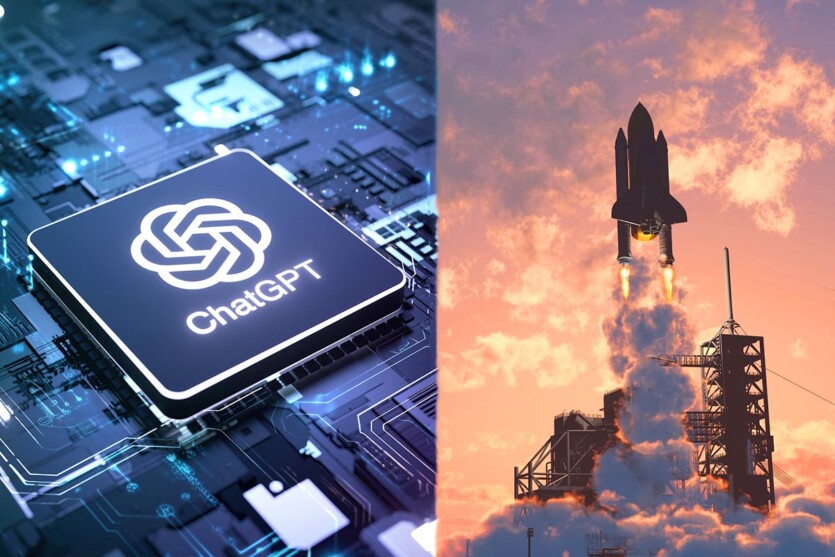
When you think of spaceflight control, you think of NASA engineers with wrinkled foreheads at numerous control room computers, not a chatbot that couldn’t solve a third-grade math problem yesterday. But here’s a surprise: researchers from MIT and the Polytechnic University of Madrid tasked ChatGPT with piloting a spaceship in a simulation. And it did better than most competitors.
The researchers used the popular Kerbal Space Program simulation to test how autonomous systems would cope with spacecraft orientation and maneuvering. They held a kind of tournament between different AI systems — the competition was called the Kerbal Space Program Differential Game Challenge.
And now for the most interesting part! ChatGPT, loaded with only a few text hints, took second place among all participants. The first place went to an algorithm that worked on the basis of accurate physical flight models. But you must admit that for a chatbot that usually generates texts or realistic fake checks and searches the Internet — this is an incredibly great result.
How is this even possible?
The team figured out a way to convert ship control tasks (orientation, course changes, approaching a target) into text instructions. These tasks were then fed to a large language model — and, unexpectedly, ChatGPT not only «understood» the meaning, but also successfully completed the task, competing with other autonomous agents.
What’s even more interesting is that the experiment was conducted before GPT-4 was released, meaning that the results could have been even better if a newer version had been used. What can I say — perhaps next time he will launch the Falcon 9 himself.
Despite the success, scientists are in no hurry to hand AI the keys to a real ship. Language models still sometimes invent things that do not exist — this is called hallucination. In space, such a «fiction» can be very expensive.
So what do we have? ChatGPT, as it turned out, not only knows how to write poetry and answer inquiries about household appliances, but can also behave properly at the helm of a virtual spaceship. Of course, it’s only in the game so far. But the fact remains that the future of autonomous space systems may be closely related to AI, and it seems that this trend has already started.
Source: futurism

Spelling error report
The following text will be sent to our editors: